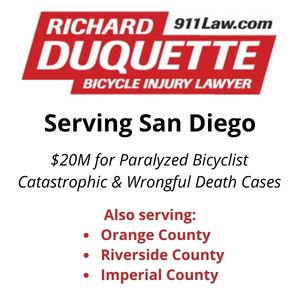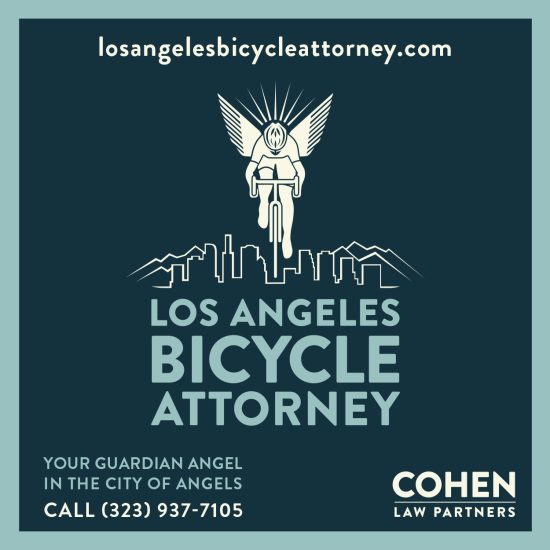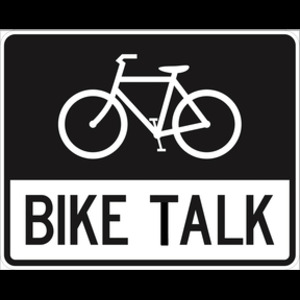
Here are a couple of the smartest takes on the great e-scooters debate I’ve seen yet.
LA’s own CD15 Councilmember Joe Buscaino penned a great Op-Ed for the Los Angeles Daily News, in which he pointed out the real problem on our streets.
And it ain’t scooters.
Most of those concerned cited safety as their primary issue with dockless scooters- they disrupt traffic when ridden in traffic lanes, cause conflict when taken on the sidewalk by scofflaw riders, and cause accessibility issues when parked in all kinds of inappropriate places.
I understand these sentiments, because I see all the same issues on our streets and sidewalks — with cars. Cars clog our streets everyday in traffic jams which are only made worse when collisions occur. I see cars parked on the sidewalk and on front lawns all the time.
The worst part about cars is the manner in whic*h people are severely injured or even killed due to vehicle collisions. This isn’t some abstract problem — we have good hard evidence that children in America are twice as likely to die in traffic collisions relative to other affluent nations. Traffic collisions are the leading cause of death for children ages 2-14 in Los Angeles.
So while I get the concern for safety on scooters, it strikes me as misplaced to blame the scooters rather than the 4,000-pound steel machines that are actually hurting people.
It’s definitely worth reading the whole thing. And maybe remembering his name when Eric Garcetti is termed out as mayor in 2022.
In another great take, a writer for a governing website says cars cause all the same problems that people complain about e-scooters causing, but scooters don’t pose a risk to others. And smart planners will make room for them.
An Oakland panel discussion tackles the topic of e-scooters, saying they pose the potential to divert drivers for short trips up to three miles, and could be the key to getting safe bike lanes.
And an Op-Ed in the LA Times says let tech solve the problem of e-scooters.
Photo shamelessly borrowed from the Bird website.
………
As we’ve mentioned a few times, the long-delayed MyFigueroa project is finally getting an official unveiling on Thursday, after nearly a decade of planning and too many compromises.
Which have left some people ecstatic over the new protected bikeway, and others wondering why the city even bothered.
Fortunately, the LACBC and other bike advocates have made progress in addressing those complaints directly with LADOT.
Here’s what Michael MacDonald of Bike the Vote LA had to say.
We’ve been working behind the scenes in dialog with our local representatives and LADOT about the concerns that many have communicated in this group and on Twitter. We still have work to do, but we’ve made some significant progress that I wanted to share.
Most notably, those of you who visit 7th and Figueroa should find that the ‘beg buttons’ are gone. There are still pedestrian buttons at this intersection, but they aren’t mandatory in order to receive a green walk signal. Similarly, by Thursday the bike signals at Olympic and 9th St should default to a green light on every signal cycle.
We’re hoping to continue to make some progress on the signal design, illegal parking in the bike lane, and improving the look and feel of bike infrastructure to be something that people of all ages and abilities can use comfortably.
If you care about this project — and I believe all in this group do — I would encourage you to attend the opening event on Thursday morning.
Hope to see you there.
And this is how LADOT responded to the complaints, in addition to offering a detailed explanation of what was done and why.
Based on community comments, LADOT has made these adjustments to MyFigueroa:
- Added bollards in areas where the bike lanes are generally unprotected and do not operate with bicycle signals, and for more physical separation and to discourage vehicles from stopping in the bike lane to load or unload or to park illegally
- Allowed for better signal progression and reduced travel time for bicyclists by adjusting signal timing and instituting rest-in-red for the bicycle and right turn signal indicators
- Extended the MyFig project north to facilitate a continuous protected northbound bike lane from 11th Street to Wilshire Boulevard (bike lane previously became unprotected at 8th Street and terminated at 7th Street) to allow for a more robust connection to bike lanes on 7th Street and the bike lane on Figueroa Street which continues to Cesar E. Chavez Avenue/Sunset Boulevard
………
Richard Rosenthal forwards word that Long Beach has installed a much needed parking-protected bike lane on Bellflower Blvd.
But not everyone seems to have gotten the memo.
Although you’d think the bike symbol right behind his car might have been a clue.

………
CicLAvia is holding a meeting to discuss the next event on September 30th, which will end in my figurative backyard.
Every CicLAvia event starts with feedback from the community. Join us tomorrow (8/29) for our next community meeting on the #CelebrateLA event! 6:30 p.m. 6501 Fountain Ave., Los Angeles, CA 90028. pic.twitter.com/2Sj64eIqE8
— CicLAvia (@CicLAvia) August 28, 2018
………
LAPD Sgt. Helper has more than lived up to his name, going out of his way to help LA’s bicycling community.
Now it’s our turn to repay him.
A bike cop and bicyclist himself, Helper is raising funds to ride in next year’s Police Unity Tour to honor fallen officers and raise funds for a National Law Enforcement Officer’s Memorial and Museum.
In other words, a good guy riding his bike to raise funds for a great cause. If that doesn’t make you open your wallet and make a donation, I don’t know what will.
And yes, I may be broke these days. But I still managed to scrape a little together to help him out.
………
Local
Now it makes a more sense. Yesterday we linked to a story saying the Gabriel National Recreation Trail was reopening this weekend thanks to the efforts of volunteers. But make that the popular Gabrielino Trail singletrack path through the Angeles National Forest.
TMZ reports actress Maura Tierney appeared to be okay a day after she was hit by a driver while riding in the Washington Blvd bike lane in Marina del Rey, as a paparazzo catches her walking gingerly near her home. Just be glad you don’t have photographers waiting in the bushes outside your door after your next crash.
Bellflower is looking for input as they develop a new active transportation plan. Thanks to Bike SGV for the link.
State
No news is good news. Right?
National
The war on cars may be a myth, but the war on bikes goes on, as a Utah endurance cyclist was the victim of a jerk in a truck rolling coal — and they have a photograph to prove it. But the state police apparently don’t give a damn.
This is who we share the roads with. A Colorado Springs CO news team was lucky to survive when they were nearly run down by a driver while reporting live from a crime scene — even though they were standing in a bike lane. Or maybe because they were in a bike lane. Thanks to Jeff Vaughn for the heads-up.
A Fargo ND city commissioner calls for raising bicycle traffic tickets from $5 to $20, saying traffic infractions committed on a bike should be treated the same as those committed in a motor vehicle. Because bikes pose just as much risk to others as cars and SUVs, right? And if they’re charging drivers just $20, something is seriously wrong.
A San Antonio company is offering ebike conversion kits to transform your ride into an up to 30 mph speedster for a mere $800 to $1,200.
This is why people continue to die on our streets. An Indiana man got a gentle caress on the wrist for running down a bike rider while high on methadone, leaving his victim seriously injured. Somehow, the judge was convinced to allow him to serve the paltry one year sentence at home, despite two prior convictions.
The NYPD is targeting delivery riders for using illegal throttle-controlled ebikes, rather than ticketing the companies they work for — even though the law clearly says the employer is responsible.
The New York driver who left a car parked in a bike lane with a note saying it predated the lane explained himself, saying the bike lane was painted around the car two days after he left on a weeklong vacation.
You’ve got to be kidding. A DC police spokesperson calls dead pedestrians lazy for getting killed by drivers, and the unquestioning local ABC affiliate runs with the demonstrably false story.
International
Vox talks with Chris and Melissa Bruntlett, the couple behind Vancouver’s Modacity, and authors of Building the Cycling City: The Dutch Blueprint for Urban Vitality.
Nova Scotia businesses are discovering the benefits of catering to bike tourists.
Chinese dockless bikeshare company Mobike is bringing their new ebikes to the streets of London to offer “sweat-free cycling.”
It’s happened again. A London bicyclist fled the scene after critically injuring a woman in a collision as she was crossing the street; police found his abandoned bike a mile away. Just to be clear, people on bikes, scooters, skateboards or anything else have just as much responsibility to remain at the scene and help a victim as drivers do, but too often don’t. So just stop already.
A British HuffPo writer says you shouldn’t listen to pro cyclists about the helmet debate, noting that bicycling is safer than walking.
Now that’s how you make a point. Two weeks after the Lord Mayor of Dublin was caught parking his official car in a bike lane, Irish bicyclists gave him a new bike so he can use the lane legally next time.
I want to be like him when I grow up. A 97-year old Dutchman rides his bike to old folks homes to play piano five days a week. Of course, that means I’d have to learn to play one.
It was a dark and stormy night. A bike tour in a Mumbai suburb gives riders a thrill with scary stories as they travel the city on two wheels.
A New Zealand city see sharrows as the bicycling solution to narrow streets and parked cars.
Caught on video: A New Zealand security camera captured a bike-riding boy getting hit by a van driver; fortunately, he wasn’t seriously injured. As always with videos like this, be sure it’s really something you want to see before you click the link, because you can’t unsee it.
Caught on video too: A pair of helmet-less bicyclists ride through an Aussie freeway tunnel on bikeshare bikes, apparently changing their mind halfway through and jumping on a ledge before transportation workers pick them up.
Competitive Cycling
Three-time national road champ Megan Guarnier announced her retirement from pro cycling after next month’s world championships. Her eleven-year career included wins in the Giro Rosa, Tour of California and Emakumeen Saria, as well as this year’s Women’s Tour de Yorkshire; she’s leaving to pursue an MD/PhD in neuroscience.
Screw spoilers. Popular American cyclist Ben King made his mark on the Vuelta, winning Tuesday’s stage in a sprint to the finish after what ended up as a two-man breakaway.
The folding of the Aqua Blue Sport Continental cycling team means there’s now another 15 riders and support staff looking for work.
Former Jelly Belly and US team member Corey Steinbrecher says he’s glad he raced clean; he’s now a resident at a Tennessee hospital after graduating medical school.
Finally…
At least we don’t have to dodge tigers. Maybe there’s an explanation for LA drivers after all.
And why did the chicken cross the road? Apparently to creep out and harass kids on the way to school.










